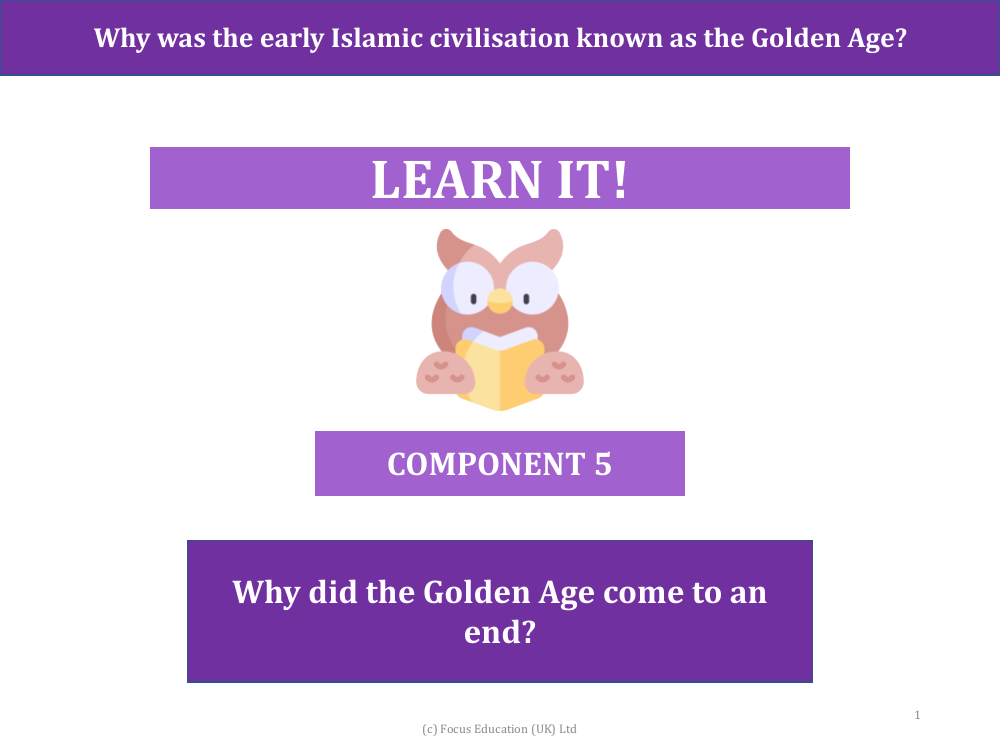Why did the Golden Age come to an end? - Presentation

History Resource Description
The decline of the Golden Age of the early Islamic civilisation is attributed to a combination of factors, as outlined in educational resources. One significant reason was the change in Islamic philosophy among some rulers, which saw a growing sentiment that scientific and medical advancements were not in alignment with true Islamic teachings. This ideological shift placed pressure on institutions like the House of Wisdom, which had been a centre for intellectual progress and harmony between faith and science during the Golden Age. As a consequence, the support and development of scientific inquiry and innovation faced substantial challenges, leading to a gradual decline in the vibrant scholarly activities that had characterised the period.
External conflicts also played a pivotal role in ending the Golden Age. The Islamic civilisation withstood assaults from the Crusaders in regions such as Spain, Turkey, and Palestine, as well as the devastating Mongol invasion that swept through Persia, Iraq, and Syria in the early 15th century. These invasions had a catastrophic impact on the centres of learning, with the sacking of Baghdad in 1258 resulting in the destruction of innumerable manuscripts. Similarly, in Cordoba, Spain, the vast majority of the city's Islamic books were annihilated. The loss of territories, including Spain and Sicily, and the military campaigns of Timur, known as Tamerlane, further weakened the Islamic world. These events signalled the start of the decline, marking the end of classical Muslim scholarship and bringing the Golden Age to its conclusion.



